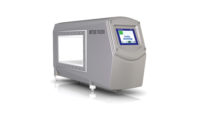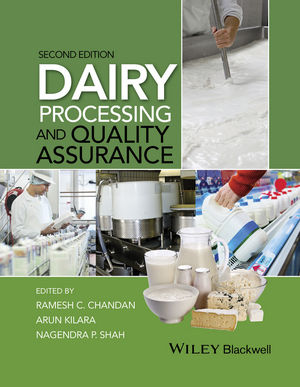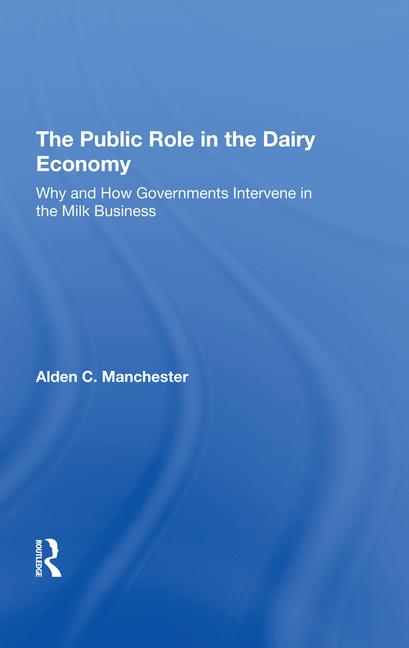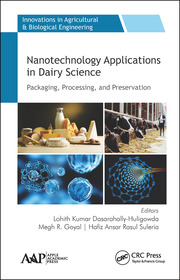Why it’s ERP
ERP system ensures that a dairy processor complies with FSMA
A critical element of converting from handwritten notes to the ERP system was detailed process mapping.
By Jack Payne and Marlene Kellenberger Corral
Dairy products are some of the most nutritious foods available, containing nine essential ingredients, three of which are often deficient in Americans (calcium, vitamin D and potassium). At the same time, dairy products have been among the most regulated foods since as early as the 1890s.
Milk is listed as one of the “big eight” that account for 90% of all food allergy reactions in the United States. Raw milk may contain a number of potentially dangerous pathogens, including E. coli, Listeria and salmonella, which poses many challenges from a food safety perspective. Pasteurization is designed to eliminate pathogens that may be present in raw milk, but there is still a possibility of contamination following this process.
Even though the U.S. food supply is considered one of the safest in the world, the Centers for Disease Control and Prevention tracked more than 14,000 outbreaks of foodborne illnesses between 1998 and 2010. The number of outbreaks, increased costs associated with foodborne illnesses and the difficulty in identifying sources of outbreaks led to the Food Safety Modernization Act. As the final rules have been released, and the first of the compliance deadlines have passed, producers have struggled to adapt to the more stringent requirements. For at least one company, certification to a Global Food Safety Initiative standard made the goal of FSMA compliance easier.
Farmdale Creamery is a family-owned dairy processor
Farmdale Creamery, San Bernardino, Calif., is a family-owned and operated business that continues to apply many of the practices it has learned over 50 years while embracing state-of-the-art technology to improve quality, consistency, and efficiency. The Farmdale family prides itself on its ability to produce custom recipes, which means they need to keep a stringent control on ingredients, product flow, processing parameters, and safety and quality tests before the final product is released.
In 2012, Farmdale became certified at Safe Quality Food Level 2, based on a customer recommendation. However, the decision to strive for SQF Level 3 certification came from senior management, who recognized the value of the additional quality and food safety requirements as a means of continuous improvement in their processing, as well as setting them apart from competitors.
“By making superior products, working to ensure the safety of those products, and providing the highest levels of customer service, we continue to build lasting partnerships that enable our customers to profit and grow,” said Juan Carlos Miñarro, assistant general manager at Farmdale Creamery.
Converting from handwritten notes to an ERP system
Historically at Farmdale, manufacturing information was stored in handwritten batch sheets and manual databases across disparate and disconnected systems. To implement the controls required by FSMA and to prepare for SQF Level 3, Farmdale recognized the need to integrate inventory management, process manufacturing, and quality processes. The decision was made to work with London Consulting Group to ensure a smooth transition from the old methods to the new.
London Consulting recommended that all manufacturing information be stored in new, integrated ERP system. Farmdale chose Aptean’s Ross ERP system, which is specifically tailored to the needs of food and beverage manufacturers, especially around traceability and regulatory compliance.
A critical element of the implementation process was the detailed process mapping that identified key inventory and process controls that could be integrated. The process maps were then used to support the optimal configuration of the ERP system so that the software would support Farmdale’s long-term objectives. During the implementation process, London Consulting supported Farmdale with change management, training, on-the-job coaching and testing to ensure every user had the training and knowledge to perform their job under the new system. The team also worked to meet the performance and savings goal set by Farmdale management.
ERP technology ensures FSMA compliance for dairy processor
The ERP technology, and the implementation focus provided by London Consulting, has ensured Farmdale’s compliance with FSMA. The strong traceability capability in Ross ERP provides for a recall plan that can be effectively executed should there be a failure in a preventive control measure, which minimizes the chance impacted products will reach consumers.
Automated lab results translate to more time invested in analyzing deviations, which supports FSMA validation studies to certify that preventive controls are minimizing identified hazards. Automated expiration controls confirm that processing and storage controls are monitored and verified accordingly to avoid sending potentially contaminated products to consumers. In addition, the software allows Farmdale to analyze precise, up-to-the-minute status of ingredients, work in progress, and finished goods under analysis. Finished products are more consistent, as there is more data in order to control processing.
Food manufacturers need a comprehensive ERP system
FSMA regulations are pushing food processors to increase their attention to detail, which brings the need for technology to the forefront. Careful attention to process and structure is one of the pillars of a successful implementation, which can provide significant operational and financial improvements to an organization.
A comprehensive, integrated ERP system designed for food manufacturers allows access to more in-depth information about the operation; improved inventory management as resources are better utilized; increased efficiencies as workflows are simplified and the possibility of human error is minimized; and increased customer service levels as more accurate electronic records are used in forecasting and planning.
The end result is a more productive, more profitable organization that has continued to earn the trust of its customers and the confidence of consumers.
Jack Payne is the vice president for product management and solution consulting at Aptean. Marlene Kellenberger Corral is a London Consulting Group project manager.
Looking for a reprint of this article?
From high-res PDFs to custom plaques, order your copy today!








